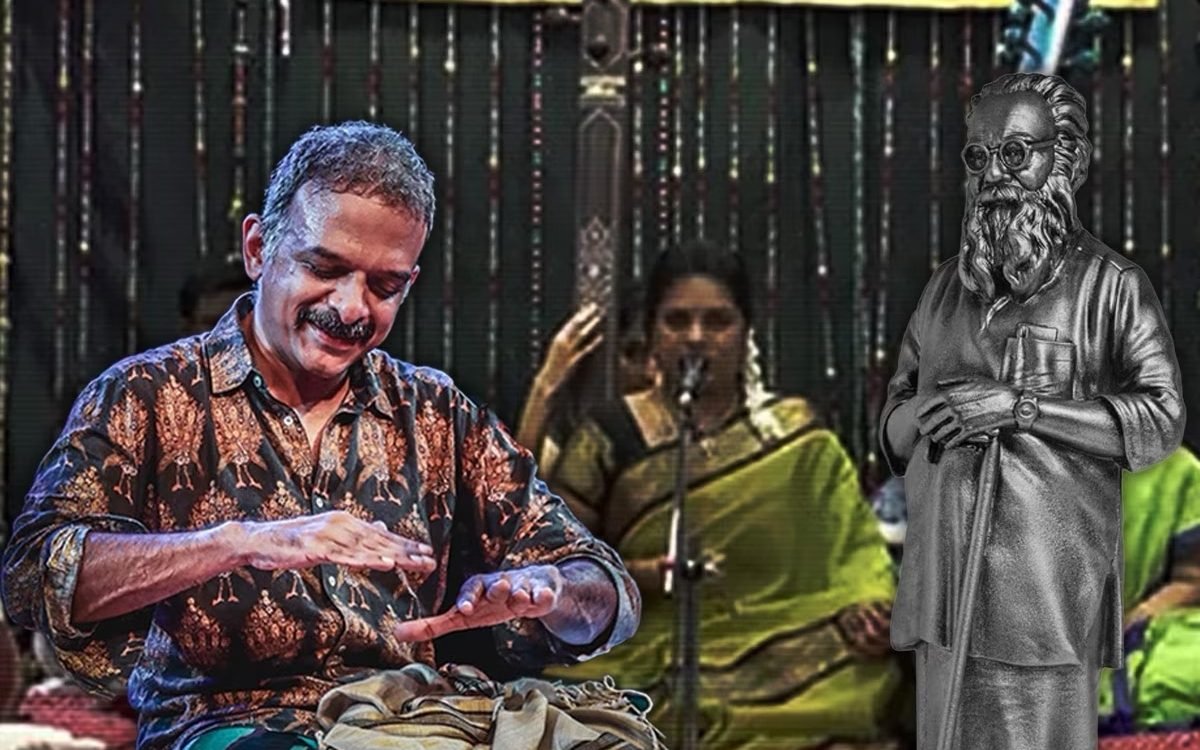The recent uproar surrounding Carnatic musician TM Krishna’s reception of the Music Academy’s Sangita Kalanidhi award has ignited a fierce ideological clash between Dravidianism and Brahminism, drawing attention from political quarters as well. Let’s delve into the intricate layers of this debate and its broader implications.
The Controversy Unveiled:
The controversy reached its zenith when singer duo Ranjani and Gayatri publicly announced their withdrawal from the Music Academy Conference scheduled for January 1, 2025, where TM Krishna is slated to be honored. Allegations against Krishna primarily revolved around his vocal activism and perceived damage to the Carnatic music world.
TM Krishna: A Vocal Critic of Brahminical Hegemony:
TM Krishna, renowned not only as a Carnatic vocalist but also as a social activist and author, has been a vocal critic of Brahminical hegemony within the Carnatic music industry. His advocacy extends to issues like caste discrimination, elitism, and the monopolization of classical art spaces.
Periyar’s Ideological Influence:
At the heart of the controversy lies TM Krishna’s admiration for Periyar, the stalwart anti-caste crusader and champion of Dravidian ideology. Periyar’s staunch criticism of Brahminical culture and advocacy for social justice deeply resonate with Krishna’s own ideological stance.
Challenging Brahminical Dominance:
Krishna’s position as a Brahmin himself adds a layer of complexity to the discourse. His vocal critique of his own community’s attempted monopoly over Carnatic music underscores his commitment to challenging casteist and elitist practices within the classical art form.
Urur Olcott Kuppam Vizha: A Symbol of Inclusivity:
In a bid to democratize art spaces and foster inclusivity, Krishna, along with environmentalist Nityanand Jayaram, established the Urur Olcott Kuppam Vizha in 2014. This festival serves as an equalizing platform where diverse art forms converge, breaking away from traditional elitist boundaries.
Resisting Artistic Hegemony:
Krishna’s resistance against the hegemony of his practiced art form, as exemplified in his acceptance speech for the Ramon Magsaysay award, underscores his commitment to challenging entrenched societal norms and fostering inclusivity.
Conclusion:
The Carnatic music controversy serves as a microcosm of broader societal tensions surrounding caste, culture, and representation. As the ideological battle rages on, TM Krishna’s advocacy for social justice and inclusivity continues to challenge the status quo, reshaping the narrative of classical art in India.









